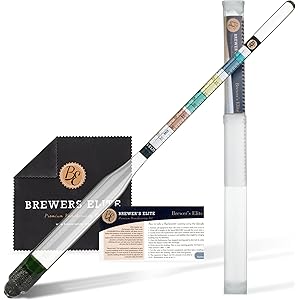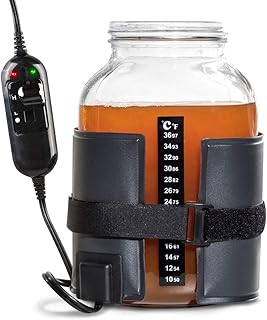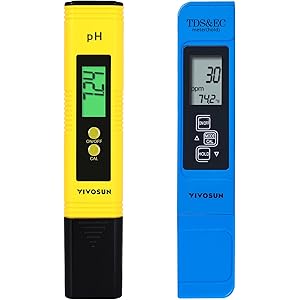Understanding Kombucha Fermentation Time
The fermentation process of kombucha is a fascinating journey that transforms sweetened tea into a tangy, effervescent beverage. The question of how long does kombucha ferment is crucial for both novice brewers and seasoned enthusiasts. Typically, the fermentation period can range from 7 to 30 days, depending on various factors such as temperature, sugar content, and the desired flavor profile.
Factors Influencing Fermentation Duration
Several elements play a significant role in determining the fermentation time of kombucha. The ambient temperature is one of the most critical factors; warmer temperatures generally accelerate fermentation, while cooler environments slow it down. Additionally, the type and amount of sugar used in the initial brew can affect how long kombucha ferments, as sugar is the primary food source for the yeast and bacteria involved in the fermentation process.
Short Fermentation: 7 to 10 Days
A short fermentation period, typically lasting between 7 to 10 days, results in a sweeter and less acidic kombucha. During this time, the yeast converts sugar into alcohol and carbon dioxide, while the bacteria begin to produce acetic acid. If you prefer a milder flavor with a hint of sweetness, this shorter fermentation window is ideal. However, it’s essential to monitor the taste regularly to achieve the desired balance.
Medium Fermentation: 10 to 21 Days
For those who enjoy a more balanced flavor, a medium fermentation period of 10 to 21 days is often recommended. This timeframe allows for a more pronounced tanginess as the acetic acid levels rise. During this stage, the kombucha develops a more complex flavor profile, making it a favorite among many kombucha drinkers. Tasting your brew periodically will help you determine the perfect moment to bottle.
Long Fermentation: 21 to 30 Days
A long fermentation period, extending from 21 to 30 days, results in a robust and tart kombucha. The extended time allows for a higher concentration of acetic acid, which can give the beverage a vinegar-like taste. This fermentation duration is suitable for those who appreciate a strong flavor and are looking for a more probiotic-rich drink. However, caution is advised, as over-fermentation can lead to an overly sour kombucha.
Get more content like this!
Sign up to receive updates and new terms first hand.
Signs of Proper Fermentation
Identifying when kombucha has fermented adequately is essential for achieving the desired taste and quality. Look for signs such as the formation of bubbles, a slight change in color, and the presence of a SCOBY (Symbiotic Culture Of Bacteria and Yeast) on the surface. Additionally, tasting the kombucha at various stages will help you understand its development and decide when to stop the fermentation process.
Temperature’s Role in Fermentation
The temperature at which kombucha ferments significantly impacts the duration and flavor of the final product. Ideal fermentation temperatures range from 68°F to 85°F (20°C to 29°C). At lower temperatures, fermentation slows down, while higher temperatures can speed up the process. It’s crucial to find a stable environment for your kombucha to ensure consistent results.
Adjusting Fermentation Time for Flavor Preferences
Every kombucha brewer has unique taste preferences, and adjusting the fermentation time is a simple way to customize your brew. If you prefer a sweeter kombucha, aim for a shorter fermentation period. Conversely, if you enjoy a more acidic and robust flavor, extend the fermentation time. Experimenting with different durations will help you discover your ideal kombucha taste.
Storing Kombucha During Fermentation
Proper storage during the fermentation process is vital for achieving the best results. Ensure your kombucha is kept in a clean, dark place away from direct sunlight. Using a breathable cloth to cover the fermentation vessel allows for air circulation while preventing contaminants from entering. This practice not only aids in fermentation but also contributes to the overall quality of the kombucha.
Final Thoughts on Kombucha Fermentation
Understanding how long does kombucha ferment is essential for any brewer looking to create the perfect batch. By considering factors such as temperature, sugar content, and personal taste preferences, you can master the art of kombucha fermentation. Remember that each batch is unique, and the best way to learn is through experimentation and tasting.




